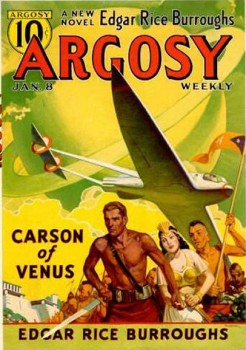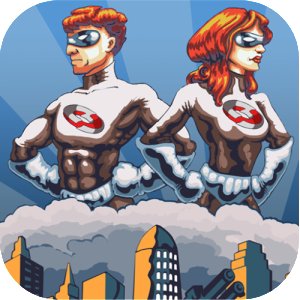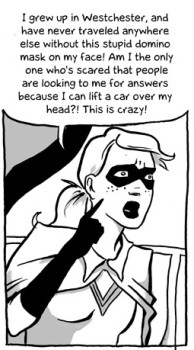What Would it Look Like to Pull a Watchmen on Planetary Romance? Part II
 When we last left our intrepid blogger (me) two weeks ago, he was blogging (very roughly) about the superhero genre, pre- and post-Watchmen, and the kind of light that Alan Moore’s Watchmen shone onto superhero comics. I did this because I think Moore did something very special and I wondered if it could be done to other fields, especially planetary romance.
When we last left our intrepid blogger (me) two weeks ago, he was blogging (very roughly) about the superhero genre, pre- and post-Watchmen, and the kind of light that Alan Moore’s Watchmen shone onto superhero comics. I did this because I think Moore did something very special and I wondered if it could be done to other fields, especially planetary romance.
I ended on a cliffhanger. And now, Part II….
I said last time that most of the traditions of the superhero genre were born in a very brief period between 1938 and 1945. In fact, the elements of the superhero tradition come part and parcel from the larger pulp tradition, which contained westerns; gritty and occasionally lurid detective stories; and planetary romances like Buck Rogers, Flash Gordon, John Carter of Mars, and Carson Napier of Venus.
The planetary romance tradition was powerfully tailored to its key market: white male American teens and men. If you were an under-appreciated teen with hero or power fantasies, pulp was your thing.
The heroes were young, white, smart, good looking, physically able, self-deprecating, and commanding. They confronted immediate perils (like a monster) or vast dangers (like an invasion), often single-handedly, or from a position of inspiring leadership.
And the opponents the hero fought were most often one-dimensional, morally-destitute cardboard placeholders for savage (non-whites) in our world, a view consistent with racial views of the late 19th century.


 Watchmen (2009)
Watchmen (2009) I’m not what you’d call a comics guy — I don’t have a set of first editions in acid-free bags in the closet, I couldn’t tell you who the Fantastic Four are, or even distinguish between Marvel and DC (though I’m pretty sure Spiderman is in one camp, and Batman in the other). But I’ve always liked and respected the medium, and the rise of the graphic novel has made sampling the best of what comics has to offer convenient for casual fans like me. So, when I spotted a recommendation in an online forum for Planet Hulk, a graphic novel in which the big green superhero takes on the role of John Carter in a sword and planet epic, I was intrigued, and made an impulse purchase. I’m glad I did.
I’m not what you’d call a comics guy — I don’t have a set of first editions in acid-free bags in the closet, I couldn’t tell you who the Fantastic Four are, or even distinguish between Marvel and DC (though I’m pretty sure Spiderman is in one camp, and Batman in the other). But I’ve always liked and respected the medium, and the rise of the graphic novel has made sampling the best of what comics has to offer convenient for casual fans like me. So, when I spotted a recommendation in an online forum for Planet Hulk, a graphic novel in which the big green superhero takes on the role of John Carter in a sword and planet epic, I was intrigued, and made an impulse purchase. I’m glad I did.